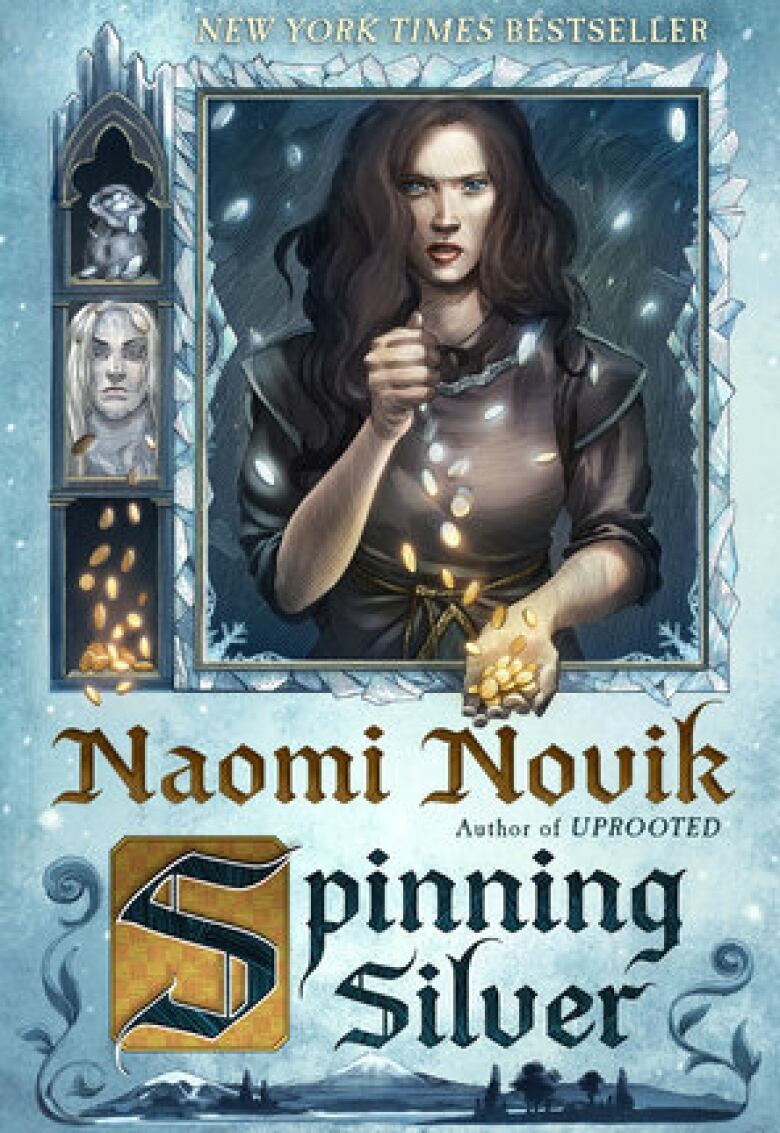Why a Hugo for fan fiction website AO3 is a win for nerds of all stripes
'I feel like we're being kind of invited back to the table,' says co-founder Francesca Coppa

Originally published April 12, 2019, the week An Archive of Our Own was nominated for a Hugo Award. On Aug. 18, 2019, AO3 won the Hugo Award for Best Related Work.
Written by Brent Bambury
When the women who built the fan fiction platform Archive of Our Own launched the site a decade ago, they expected it to be huge. Now the Hugo Awards, science fiction's top literary prize, seem to see it too.
This week, AO3 was nominated for a Hugo, not for any individual or specific literary works, but for the platform itself.
"Fan fiction has always been popular but it's growing exponentially," Francesca Coppa said on Day 6. She's part of the original collective of women who developed AO3 "from a blinking cursor" to a comprehensively organized and massive amateur archive.
Today AO3 has two million users and hosts 4.7 million articles, but it's pointless to dwell on the numbers for too long.

"Any of the numbers that you're saying will be supplanted in about five minutes," Coppa said.
Fan fiction writers produce compulsively and Coppa is pleased the Hugos have noticed.
"It feels very much like a kind of welcoming home for fan fiction, which has been ... a sort of bastard stepdaughter of the community for some time, and I feel like we're being kind of invited back to the table. And that's really wonderful."
'The punk rock of the literary world'
Fan fiction is born of imagination and passion, and the people who write it have a surfeit of both. Writers take existing characters or series and project their own imaginations onto them.
"People will write about the things that they love ... and they will also fix the things they didn't love," Coppa said.
"People will write continuations of their favourite novels. There's fan fiction about theatre, there's fan fiction about movies, about rock bands, about board games — you name it."
Take Buffy, for example.
Buffy the Vampire Slayer is a feverishly adored TV series with a zealous fan base, but there hasn't been a new episode of the show in 15 years. In fan fiction, Buffy shows up every day. (Fan fiction shows up in Buffy too. In an episode from season seven, Willow was seen writing a fan fiction of Doogie Howser, M.D..)

An AO3 search of "Buffy" yields over 28,000 hits. But don't expect the Buffy of fan fiction to act the way she does on TV. It's another universe and screenwriter Joss Whedon's rules don't apply.
"Literally anything you can imagine probably has somebody who is writing a version of it — extending it, inverting It, telling it differently, changing the characters, continuing the ending, switching genders, switching races, switching perspectives," Coppa said.
"Fan fiction is kind of the punk rock of the literary world."
Building a dream
It hasn't always been easy for fan fiction to find a home online. Previous hosts purged content and muddied ownership.
"The fact is, the exponential interest in fan fiction, particularly in the age of the internet, meant that there were venture capitalists really trying to kind of own us in our community," Coppa said.
AO3 was built out of a sense of frustration about the lack of good homes for fan fiction. The founders also happened to be all women.
"We didn't do it on purpose," Coppa said. "But fan fiction writing is a predominantly female hobby, and we found all the experience we needed in our own backyard: not just coders, [systems] admins, and designers, but lawyers, PR people, accountants, development officers, metadata specialists."
The result remained the largest all-female open source coding project on the internet until a few men joined the team.
The site was designed to include everyone.
"The cry of every fan is, 'Come be in my fandom,'" Coppa said. "Everyone is welcome and the archive doesn't police who is a fan. You are if you say you are."
A great feminist story
AO3's Hugo nomination is a reckoning for fan fiction, and it helps elevate a form sometimes dismissed as amateur.

Coppa argues the barrier between high and low art may be more permeable than it seems.
"Many fan fiction writers are also professional writers. Naomi Novik is nominated for best novel this year and she's also an Archive of Our Own founder and a fan fiction writer. Many women who've been nominated for Hugos — it's a big secret — are also fan fiction writers."
But Coppa is adamant that AO3 will continue to celebrate the amateur.
"I think fan fiction should always be a place of fun. It should be amateur and it should be experimental," she said.
"But you know, women learn skills in fandom that they can use in other places and that's also a kind of great feminist story."
To hear the full interview with Francesca Coppa, download our podcast or click the 'Listen' button at the top of this page.